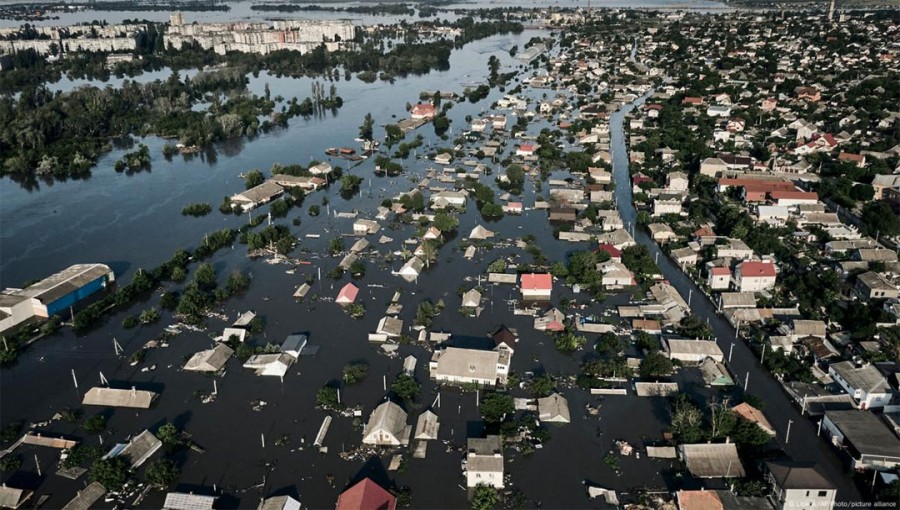Germany, Sep 8 (V7N)- A recent survey involving 22,000 participants from the G20 nations, the European Union, and the African Union has highlighted significant public concern about the state of the planet. The survey reveals a strong call for criminalizing large-scale environmental and climate damage.
For the first time, the Global Commons Survey, conducted annually by Ipsos UK and commissioned by the Global Commons Alliance and Earth4all, addressed the issue of criminalizing environmental harm. The survey found that 72% of respondents support this measure, slightly higher than the 69% who believe Earth is nearing critical climate and ecological tipping points. Only 13% expressed skepticism about climate change science.
Owen Gaffney, co-lead of Earth4Life, a group of economic thinkers and scientists, emphasized that the survey results reflect a "strong mandate" for political and economic changes necessary to safeguard nature and the climate. Gaffney pointed out that despite these concerns, government policies often lack ambition. He noted that the survey coincides with major political events, like the upcoming US presidential election.
Emerging Economies Feel Greater Vulnerability
The survey indicates that respondents from emerging economies feel more personally exposed to climate change compared to those in Europe and the US. Countries such as Mexico, Brazil, India, China, Indonesia, and South Africa reported higher levels of concern and urgency regarding climate action. Gaffney highlighted that people in these regions face more direct environmental and climate risks.
In contrast, respondents from European countries like Denmark and Sweden, where extreme climate impacts are less evident, reported lower levels of personal exposure and concern.
General Agreement on Climate Tipping Points
A significant portion of the survey participants believes that Earth is nearing environmental tipping points. For example, 60% of Swedish respondents agreed with this notion, while 86% of those from Kenya felt similarly. Indonesia, Mexico, and Brazil also reported high levels of agreement. Surprisingly, Saudi Arabia, despite its climate challenges, showed lower levels of concern, potentially due to its ability to adapt through wealthier means.
Desire to Criminalize Ecocide
The survey’s most notable finding was the strong public support for criminalizing severe environmental damage, also known as ecocide. Gaffney noted that this demand is increasingly reflected in legislation worldwide. Belgium recently recognized ecocide as a federal crime, and France has introduced penalties for offenders. Bills are also being proposed in Brazil, Italy, Mexico, the Netherlands, Peru, and Scotland.
Jojo Mehta, co-founder and CEO of Stop Ecocide International, highlighted that the push for ecocide legislation is driven by widespread civil society demand. This momentum aims to include ecocide in the Rome Statute of the International Criminal Court, treating mass environmental destruction as a serious international crime. Mehta stressed that creating personal criminal liability for top decision-makers could serve as a significant deterrent.
END/MSS/































Comment: